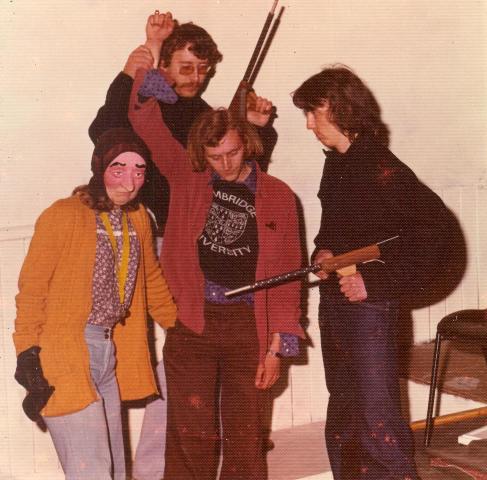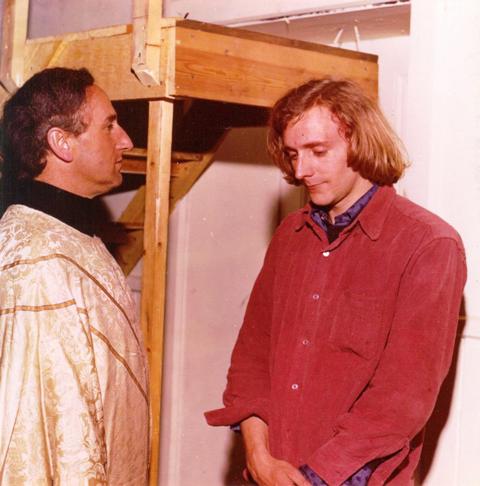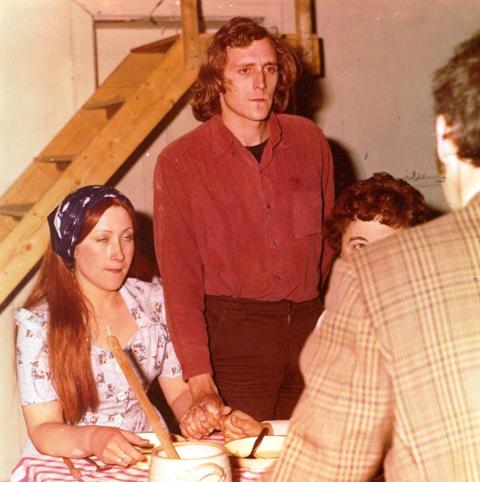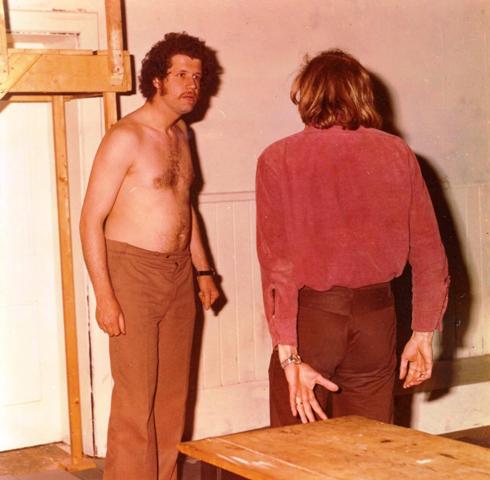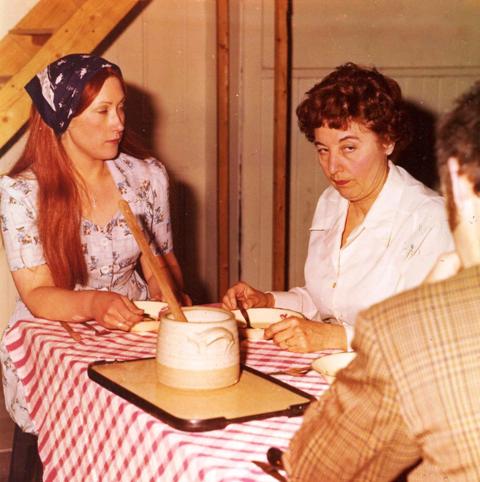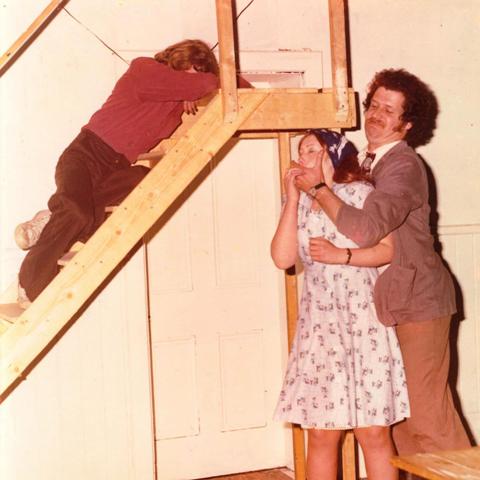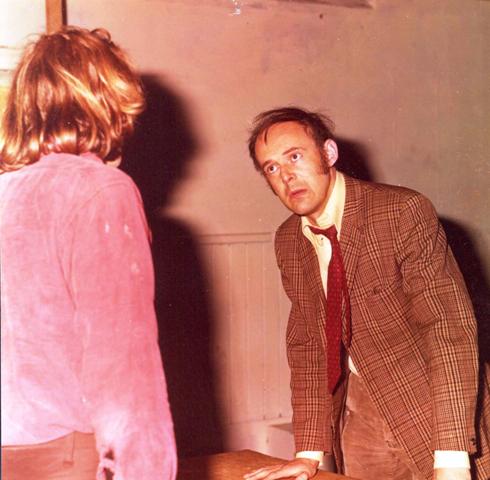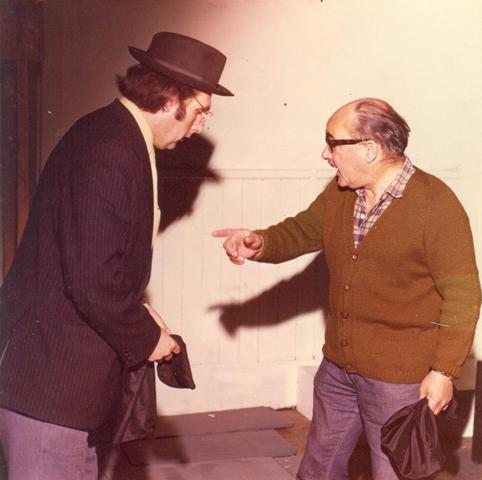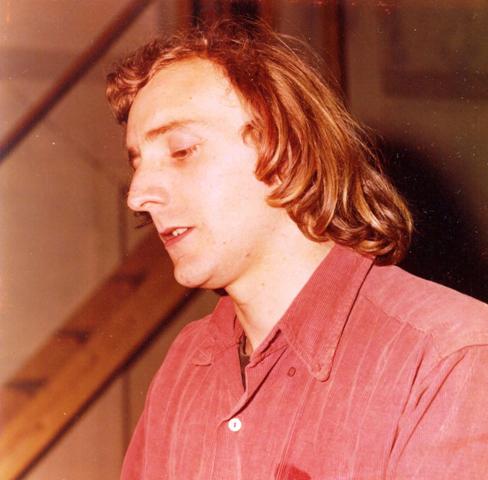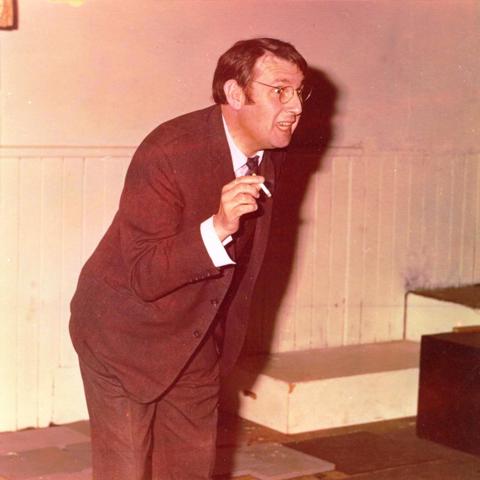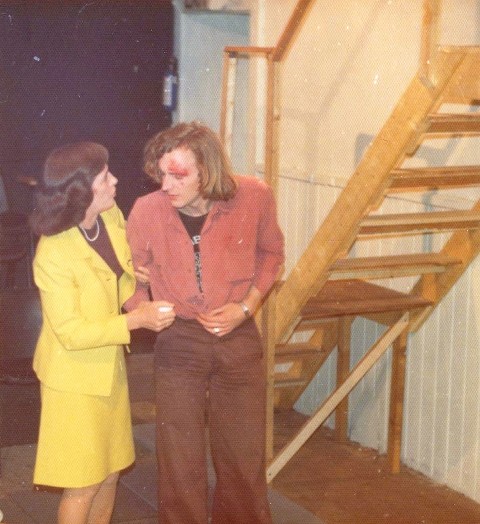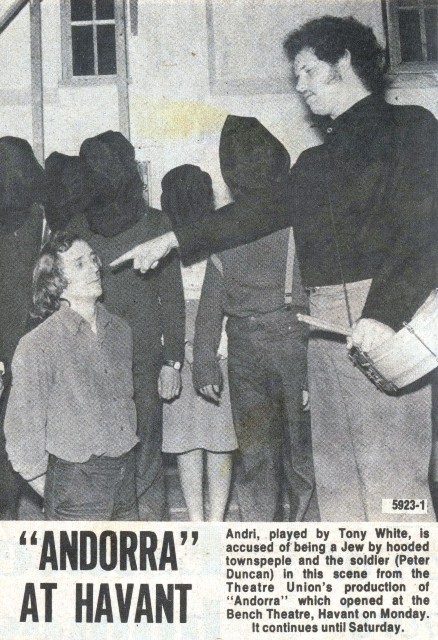The Bench Production
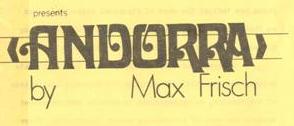
This play was staged under Bench Theatre's original company name of Theatre Union, at their theatre in West Street. It was actually the building in West Street, Havant where most of the Company's early plays were staged, which was called the Bench Theatre (after its prior use as a magistrates' court). The company's name was changed gradually by word of mouth and general usage between the years 1973 - 1977 when reviewers, and then members themselves, gradually stopped referring to Theatre Union and started calling the company of players 'Bench Theatre'. The new Company name of Bench Theatre was adopted in to all the promotional literature after they moved from the old theatre (which had been their home for nearly 7 years) in to the Old Town Hall building in East Street.
Cast
| Andri | Tony White |
| Barblin | Sharon Rose |
| The Teacher | Tony Starr |
| The Mother | Eve Moore |
| The Senora | Robbie Cattermole |
| The Priest | Derek Cusdin |
| The Soldier | Peter Duncan |
| The Innkeeper | David Spackman |
| The Carpenter | Tim Atkinson |
| The Doctor | John Scadding |
| The Journeyman | Steve Farrell |
| The Somebody | Tim Mahoney |
| An Idiot | Richard Cattermole |
| The Jew Detector | Ingrid Corrigan |
| Choristers | Imogen Sawyer Gillian Green Joanne Green Amanda Beeton |
Crew
| Director | Jill Sawyer |
| Stage Manager | Glenn Simmons |
| Lighting Designer | Peter Holding |
| Lighting Operator | Hazel Rhymes |
| Costumes | Angela Mansfield |
| Sound | Geoff Findon |
| Set Designer | Ed Sawyer |
| Set Construction | Peter Holding Ed Sawyer |
| Properties | Ingrid Corrigan |
| House Manager Publicity | Peter Corrigan |
Director's Notes
'Andorra' is the 22nd major production by Theatre Union, the group based at the Bench. The play belongs to that category loosely termed 'modern classics'. Theatre Union has tackled the work of classical playwrights such as Shakespeare, Shaw, Sheridan and Chekhov and is already planning a production of 'As You Like It ' for 1977. However, quite by accident rather than deliberate policy, and possibly influenced by the physical limitation of the theatre, an emphasis can be seen to have developed towards the work of outstanding modern playwrights. Plays by such distinguished and acclaimed American and English writers such as Miller, Albee, Osborne and Shaffer have featured strongly in our choice of plays. Tonight's production is our first major venture in to the realm of European Theatre, since the inaugural production of ' Six Characters In Search of an Author' by Pirandello way back in 1969. The translation is by Michael Bullock.
Jill Sawyer
Reviews
The NewsE.E.
Play to make you feel guilty...
If you go to the Havant Bench Theatre this week, you could come away feeling guilty. So says Jill Sawyer, director of 'Andorra' by Max Frisch which is being put on by the Theatre Union until Saturday. The plot centres on Andri, played by Tony White, a drama teacher at Broomfield School, who holds the play together with a very moving performance. Andri is forced to accept a view of himself imposed by the community and is eventually betrayed by his fellow citizens. "It is ordinary people like you and me who condemn and I hope this gives the audience something to go home and think about," said Miss Sawyer. Due to his being brought up to believe he is a Jew, Andri is condemned by the people of Andorra, and when it is disclosed he is not a Jew he is trapped by public image.
The rest of the cast, who represent the community of Andorra, supported Tony White admirably, notably The Doctor (John Scadding) whose rejection and betrayal of Andri is especially convincing, and The Soldier (Peter Duncan) who is frightening and aggressive. The Idiot is played by 14-year old Richard Cattermole who is a pupil of Warblington School. The dramatic effect is heightened in the close confines of the tiny theatre. You feel you could reach out and touch the players, and this helps the audience, whether they like it or not, to become involved in the action. The play poses technical problems, mainly in achieving continuity, die to the numerous short scenes, with a great deal of entrancing and exciting, and more than 100 lightning changes, but these obstacles are overcome due to the efficiency of the production.
The News, 25th May 1976
